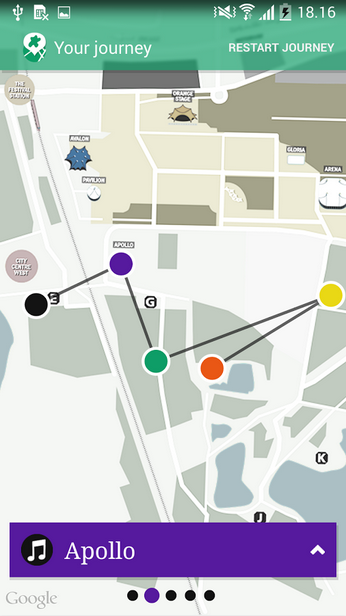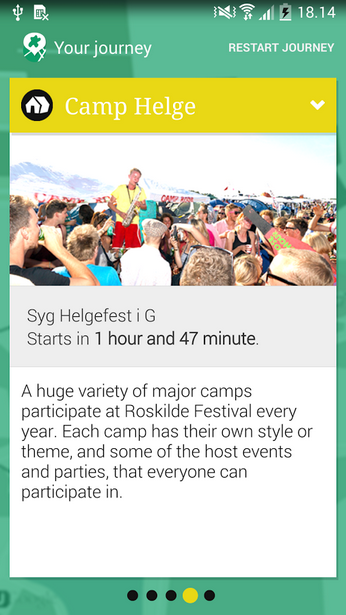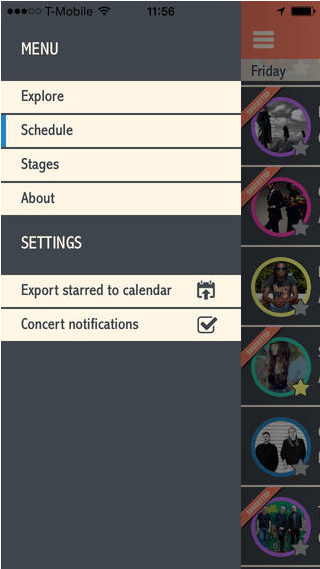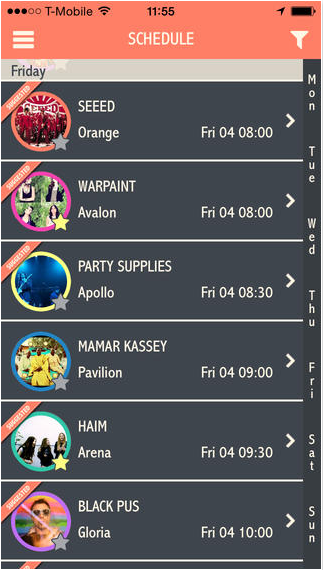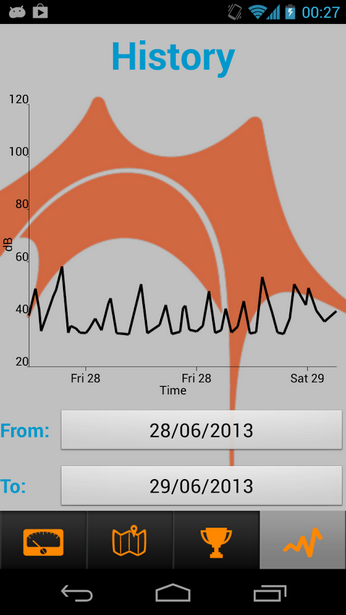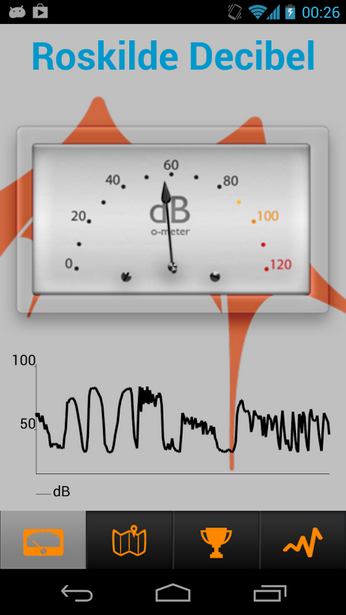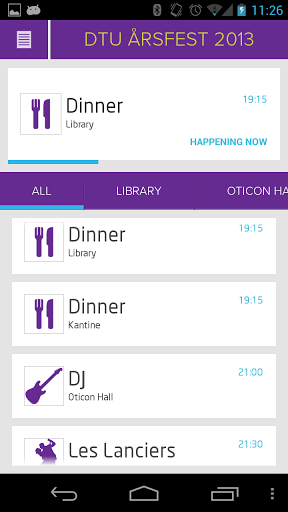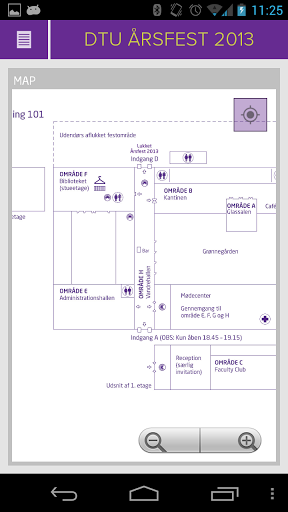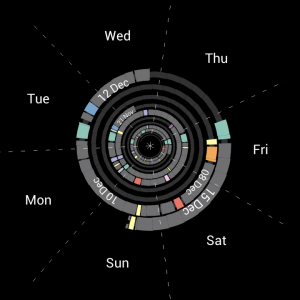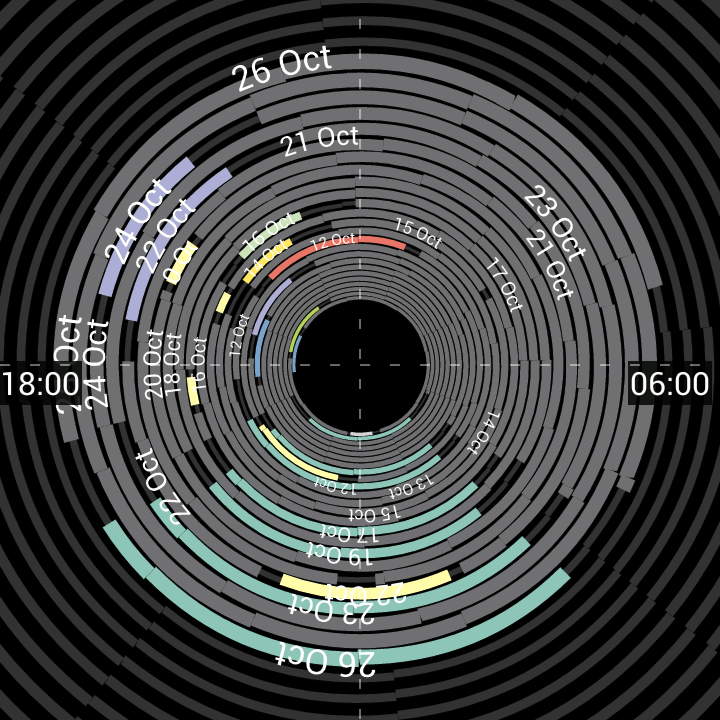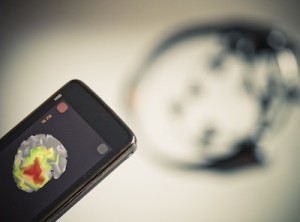Today my PhD student Arek Stopczynski successfully defended his PhD thesis ‘Mobile Phones as Cognitive Systems‘. Congratulations, Arek!
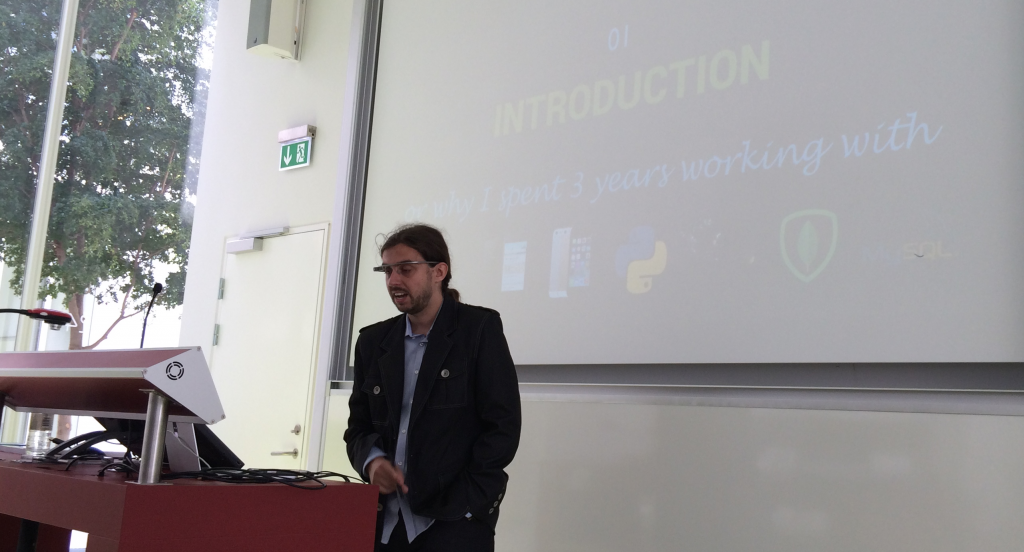
Tag Archives: mobile
More festival apps – Roskilde Festival 2014
Like previous years current and former DTU Compute students have created mobile apps for Roskilde Festival as part of the partnership between DTU and Roskilde Festival and our research activities. The apps this year include:
Roskilde Explorer
The app lets you know, what the festival has to offer right here, right now.
Roskilde Festival Music Suggest
The app has been the Official Roskilde Labs app contest winner in 2013 and 2014. It help guests at Roskilde Festival explore artists playing at the festival and provide suggestions based on sources including Facebook, iTunes, and last.fm.
Roskilde Decibel 2014
The app allows you to visualize and track how much noise you are exposed to. You can get immediate measurement of the current sound level in decibel and noise levels directly on the Roskilde map. You can get achievements too by measuring sound levels around Roskilde’s stages or at specific times of the day.
Visit by the Prime Minister
Danish Prime Minister Helle Thorning-Schmidt and the Minister for Economic Affairs and the Interior, Margrethe Vestager, paid a visit to DTU on May 5.
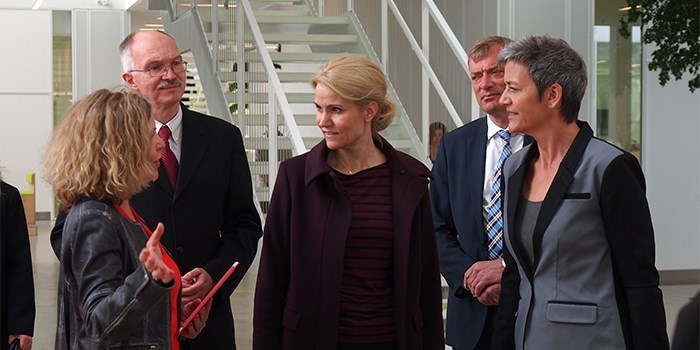
Head of our Department of Applied Mathematics and Computer Science (DTU Compute), Helle Rootzén, discussed the potential of Big Data and our Smartphone Brain Scanner was showcased as an example.
TEDx Talk: Human Data for Life
My TEDx talk entitled Human Data for Life from the recent TEDxCopenhagenSalon event is available.
Over the last couple of years self-tracking has gained increased interest with the availability of smartphones and low-cost wearable sensors. The increasing quantities of data that we can capture about human behavior and interactions are key to future improvements in health and well-being.
Crowds, Bluetooth and Rock’n’Roll: Understanding Music Festival Participant Behavior
Our paper on Crowds, Bluetooth and Rock’n’Roll: Understanding Music Festival Participant Behavior is available in arXiv. At a large music festival (8 days and 130,000+ participants) we applied Bluetooth sensing to discover Bluetooth-enabled mobile phones carried by the participants, which enabled us to observe patterns of behavior in terms of participant mobility and offline social interaction. An overall summary of the mobility data collected during the 8 day festival is shown below.

A nice popular summary of the article was made by MIT Technology Review in Music Festivals, Bluetooth Monitoring and the Behavior of Crowds.
Smartphone Brain Scanner showcase at DTU Compute Inauguration
The Smartphone Brain Scanner project was a showcase at the DTU Compute Inauguration on May 17th.
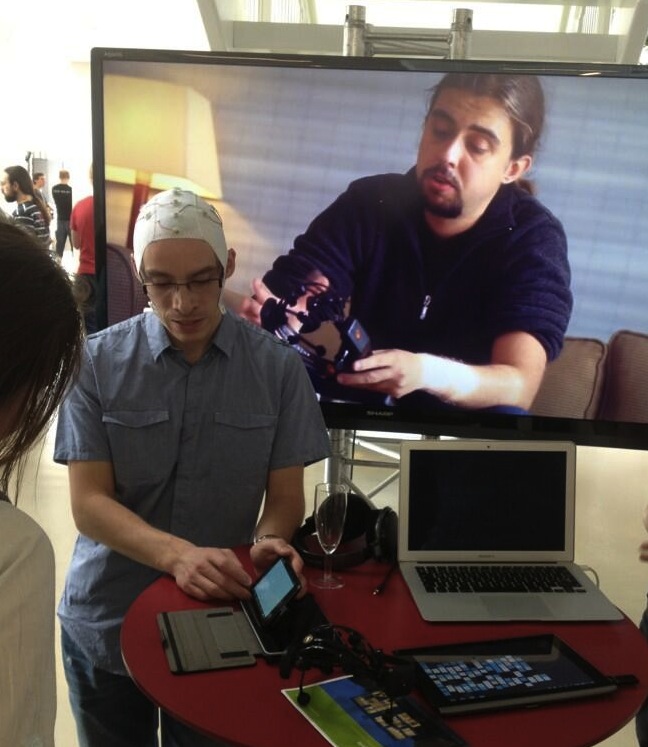
App for the DTU Annual Party
A group of my students from my Mobile Application Prototyping class (spring semester course 02827) has developed an Android app for the DTU Annual Party, which allow the participants at the party to navigate through all the events and see where and when the events are and set alarms.
The app is available for download in Google Play. Congratulations on the nice work to Adrian Alan Pol, Albert Fernández de la Peña, and Javier Calvo Torres.
QS Spiral: Visualizing Periodic Quantified Self Data
As part of the Personal Informatics Workshop at CHI2013 we presented our paper QS Spiral: Visualizing Periodic Quantified Self Data. The paper is co-authored with Andrea Cuttone and Sune Lehmann.
In the paper we propose an interactive visualization technique QS Spiral that aims to capture the periodic properties of quantified self data and let the user explore those recurring patterns. The approach is based on time-series data visualized as a spiral structure. The interactivity includes the possibility of varying the time span and the time frame shown, allowing for different levels of detail and the discoverability of repetitive patterns in the data on multiple scales.
PerCom 2013
I had the opportunity to be part of the PerCom Pervasive Computing conference where I presented our paper on Participatory Bluetooth Sensing, as well as chairing a session in the PerMoby 2013 workshop on “Understanding Context”. Our paper was well received and generated a lot of interesting questions and comments.
Smartphone Brain Scanner Available as Open Source
We are proud to announce the availability of the Smartphone Brain Scanner as open source under the MIT License.
SmartphoneBrainScanner is a framework for building cross-platform real-time EEG applications. Originally developed at Technical University of Denmark for collecting and analyzing signals from Emotiv EPOC headset, its extensible architecture allows working with various EEG systems and multiple platforms.
SmartphoneBrainScanner contains state-of-the-art techniques for working with multi-channel EEG signal in real-time, most notably source reconstruction methods with online adaptation to the noise level. Current implemented source reconstruction approaches cover the minimum-norm and low resolution tomography (LORETA) methods formulated in a Bayesian framework using a expectation-maximization scheme for hyperparameter estimation. The SBS2 source reconstruction is realized using a pre-build forward model connecting the cortical surface with the electrodes at the scalp. The current forward model provided with the software is a 3-spheres model obtained from the Matlab toolbox SPM8 using coarse spatial resolution and with sensor positions in accordance with the Emotiv EPOC system.
Source code and additional information is available on the smartphonebrainscanner project website.
ArtistRecommender winner app at Roskilde Labs
With the Roskilde ArtistRecommender app for Android, it is possible to get personal artist recommendations. Find the bands playing at Roskilde Festival which are similar to your taste in music, and explore new music at the Roskilde Festival.
The app is developed by three masters students in our Digital Media Engineering program at DTU Informatics under my supervision and was recently selected as one of four winner apps at Roskilde LABS ’12. Congratulations to Erik Beuschau, Michael Lunøe and Rasmus Theodorsen.
The DTU Roskilde site also has a short article (in danish) about the ArtistRecommender app.
Experiments with mobile apps at Roskilde Festival 2012
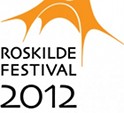 This year at Roskilde Festival we are running a set of experiments by having festival participants using cool apps that have been developed by students in our lab:
This year at Roskilde Festival we are running a set of experiments by having festival participants using cool apps that have been developed by students in our lab:
-
Orange Fever – a massive social game where you infect others using Bluetooth and spread the ‘Orange Fever’
-
Hide and Seek – a game about meeting new people at Roskilde Festival by means of your smartphone
-
Roskilde Decibel – the app will collect ambient noise level showing the user the level of noise exposure s/he has been exposed to
-
MusicNerd – navigate between concerts in a tightly packed music schedule at Roskilde Festival 2012
-
SoundRate – rate your music preferences and experiences and provide useful feedback
-
ArtistRecommender – browse the artists at Roskilde Festival 2012 and get personal recommendations
All apps can be downloaded from Google Play.
Grant from H. C. Ørsted Foundation
We have received a grant from the H. C. Ørsted Foundation (in danish: H. C. Ørsteds Fond for Teknisk-Videnskabelige undersøgelser) to support our research in human behavior and mobility modeling using smartphones and wearable sensors.
NIPS 2011 Demo
We demo our smartphone brain scanner at the Neural Information Processing Systems (NIPS) conference, Granada, Spain, December 12-17, 2011.
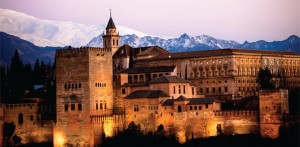
Data enables a better life
My colleague Carsten Stahlhut and I gave an interview to P1 Harddisken about our smartphone brain scanner and the recent Quantified Self Conference in Amsterdam.

The interview (in Danish) is available as a podcast and starts about the 14:20 mark.
My 5 minutes as a Quantified Self “Rock Star”
I presented our Smartphone Brain Scanner at the first Quantified Self Conference in Europe. Since I believe in the eating your own dog food mantra I was wearing the neuroheadset and using the smartphone brain scanner while giving my short Ignite Talk.
If you thought giving an Ignite Talk was stressful (a 5 minute presentation accompanied by 20 slides each displayed for 15 seconds, and the slides automatically advance) then try giving a live demonstration of your research prototype meanwhile :-)
Feeling like a rock star was during the break after the presentation where I got to talk to so many interesting people from the quantified self community that were interested in our research.
The smartphone brain scanner explained
On Nokia Conversations Ph.D. student Arek Stopczynski “talks us through this innovative breakthrough product that works by connecting a commercially available wireless 14-channel EEG headset to a Nokia N900 smartphone”.
More information about the project is available here.
Affective Computing and Intelligent Interaction (ACII 2011)
We are presenting two research papers and a demo of our smartphone brain scanner at the Affective Computing and Intelligent Interaction (ACII2011) conference in Memphis, Tennessee on October 9 to 12, 2011.

New Scientist: Phone app runs portable brain activity scanner
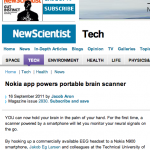 “YOU can now hold your brain in the palm of your hand. For the first time, a scanner powered by a smartphone will let you monitor your neural signals on the go.”
“YOU can now hold your brain in the palm of your hand. For the first time, a scanner powered by a smartphone will let you monitor your neural signals on the go.”
New Scientist Magazine issue 2830 14 Sept 2011 has an article Phone app runs portable brain activity scanner describing our Smartphone Brain Scanner.
Smartphone Brain Scanner
A video demo of our smartphone brain scanner is available:
More information available here.

